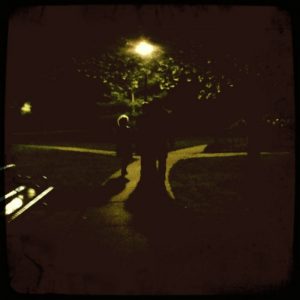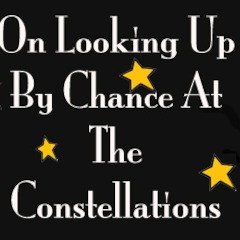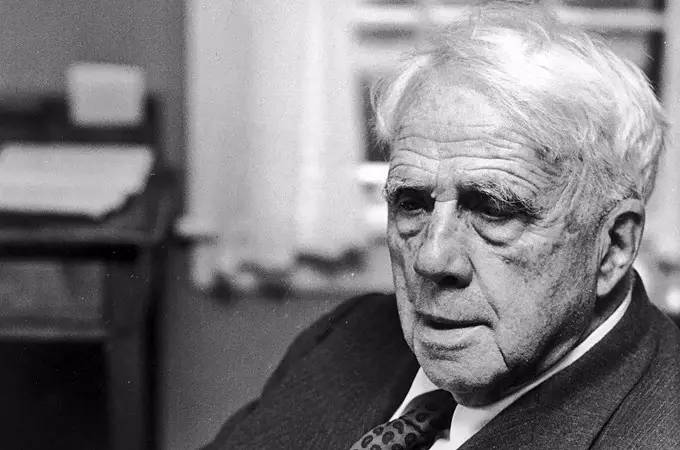 望处晚云飘断,
望处晚云飘断,
惊惶疾步,北极之光。
天国琼楼,空等岁月绵长。
日和月,不亲不近,
不碰响。
星宿乖张,有恒常,
各行其道,无甚伤亡。
良方,人生隐忍,
少观星月,放眼山庄。
变卦无惊,
旱田求雨有希望。
看中国,长期稳定,终有乱,
和谐天堂,
黯无望,
夜来平静,明日安详。
───────────
① 译自弗罗斯特的诗集《西流溪水》(West-running Brook,1928),诗中体现的斯多葛主义(Stoicism)的自然法思想与物极必反的道家哲学相通,同时带有禅宗顺应自然的圆融和平常心。
罗伯特·弗罗斯特(1874- 1963)——美国著名诗人
On Looking Up by Chance at the Constellations
by Robert Frost
 You’ll wait a long, long time for anything much
You’ll wait a long, long time for anything much
To happen in heaven beyond the floats of cloud
And the Northern Lights that run like tingling nerves.
The sun and moon get crossed, but they never touch,
Nor strike out fire from each other nor crash out loud.
The planets seem to interfere in their curves
But nothing ever happens, no harm is done.
We may as well go patiently on with our life,
And look elsewhere than to stars and moon and sun
For the shocks and changes we need to keep us sane.
It is true the longest drouth will end in rain,
The longest peace in China will end in strife.
Still it wouldn’t reward the watcher to stay awake
In hopes of seeing the calm of heaven break
On his particular time and personal sight.
That calm seems certainly safe to last to-night.
来源:译者博客

